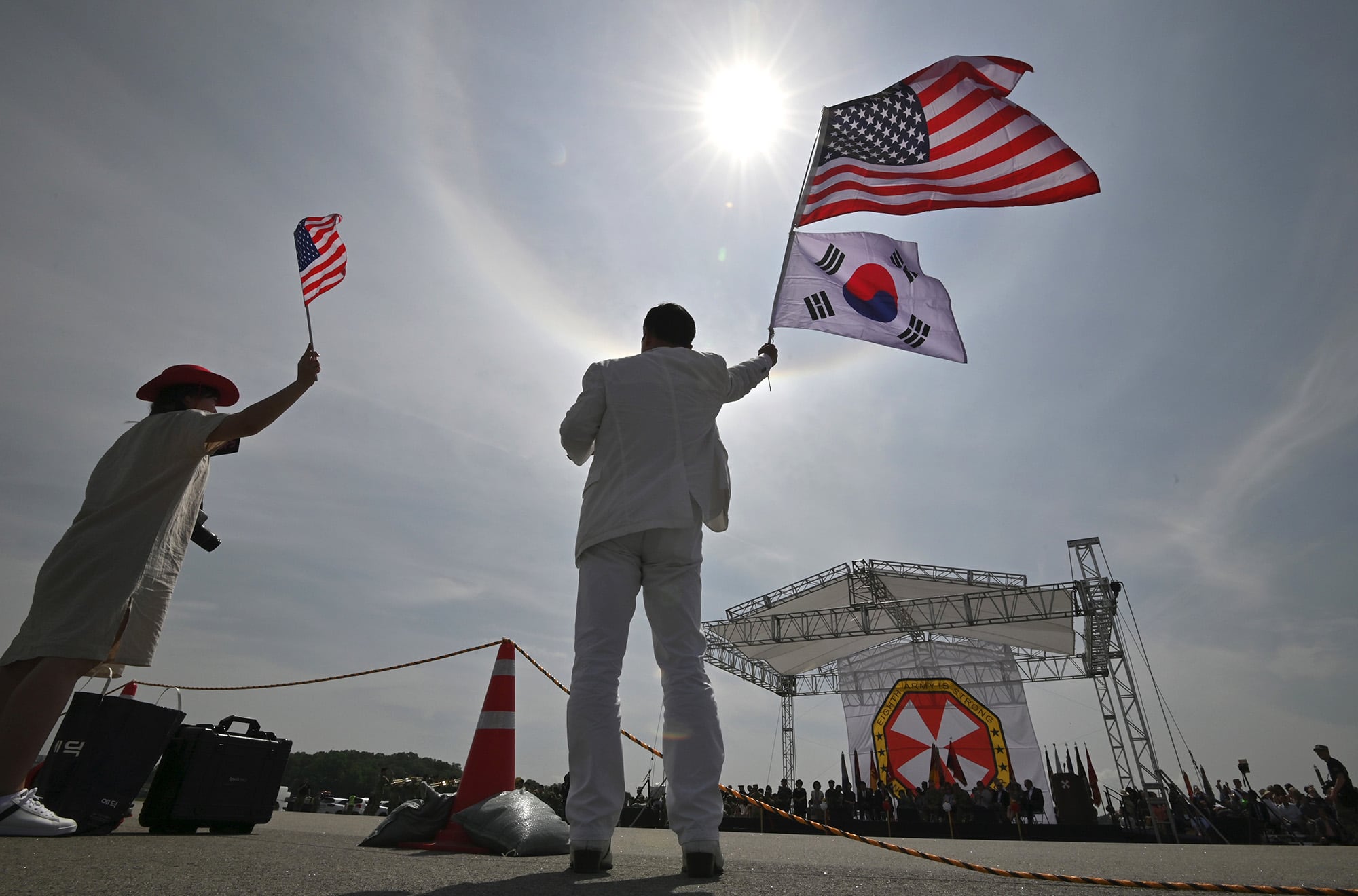WASHINGTON ― North Korea is likely waiting until after the U.S. elections to reopen negotiations with Washington over its nuclear arsenal, the South Korean ambassador to the U.S. said Thursday.
“I have a hunch that North Korea is waiting for the November election in the United States because we have only two months left until the election,” Lee Soo-Hyuck said Thursday at a virtual forum. “After the elections, maybe there will be a chance for the United States and North Korea to conduct a negotiation.”
Lee also said Pyongyang, for the time being, has closed the door to dialogue with Seoul.
Since the February 2019 Hanoi Summit failed to reach an agreement, the United States and North Korea have been mired in a diplomatic stalemate with minimal negotiations.
Lee’s comments came after the United Nations’ atomic watchdog said Wednesday that there are no signs North Korea has reprocessed fuel from its main nuclear reactor into plutonium over the past year. However, Pyongyang appears to still be enriching uranium, which could potentially be used in a nuclear weapon.
Lee acknowledged that Pyongyang was continuing its nuclear energy efforts, but said it has maintained a moratorium on tests of nuclear weapons and long-range missiles.
“I believe if North Korea continues this trend, then we have a chance for a negotiation again, but when negotiations can be resumed, I don’t know,” he said.

U.S. President Donald Trump has said he will make deals with North Korea “very quickly” if reelected on Nov. 3. His Democratic rival, former Vice President Joe Biden, said he would not continue Trump’s personal diplomacy with North Korean leader Kim Jong Un, and would focus more on general diplomacy with the Asian nation and isolating its government through sanctions.
Last year, North Korea lashed out at Biden, calling him a “rabid dog” that should “be beaten to death” for comments seen as disparaging of Kim.
In a separate forum Thursday, Gen. Vincent Brooks, who served as U.S. Forces Korea commander from 2016 to 2018, said that North Korea is likely eyeing 2021 because of the South’s elections in 2022.
“In 2021, the South Korean government is in its final year, and campaigning is ongoing,” Brooks said. “North Korea is going to wait until 2021 before they begin to engage South Korea. South Korea will continue to try, of course, but I think there would be limited responses and likely negative responses.”
South Korea may also be waiting for the results of America’s next presidential election.
Bilateral talks have foundered over U.S. demands that Seoul sharply increase its contribution to offset the costs of stationing some 28,500 service members to protect against North Korean threats. Trump has openly complained about the costs, and reportedly wants a 50 percent increase ― down from 400 percent initially.
Earlier this summer, The Wall Street Journal reported that the Pentagon was drawing up plans to reduce the U.S. presence in South Korea. U.S. Defense Secretary Mark Esper said after the report that he had not issued any such orders, but he did leave the door open for a future move.
Asked if the alliance between the U.S. and South Korea is in “deep trouble,” Lee said the pact is “stronger” for withstanding differences between the two on security, economic and social issues ― which he sees as part of a “healthy agenda” for bilateral discussions.
“If we have a different view, [politicians and experts] call it a trouble source, but I don’t think those things can be regarded as trouble. It’s just the agenda of the negotiations or consultations between the two countries,” Lee said. “We can negotiate in a peaceful manner. Then, no problem.”
Joe Gould was the senior Pentagon reporter for Defense News, covering the intersection of national security policy, politics and the defense industry. He had previously served as Congress reporter.





